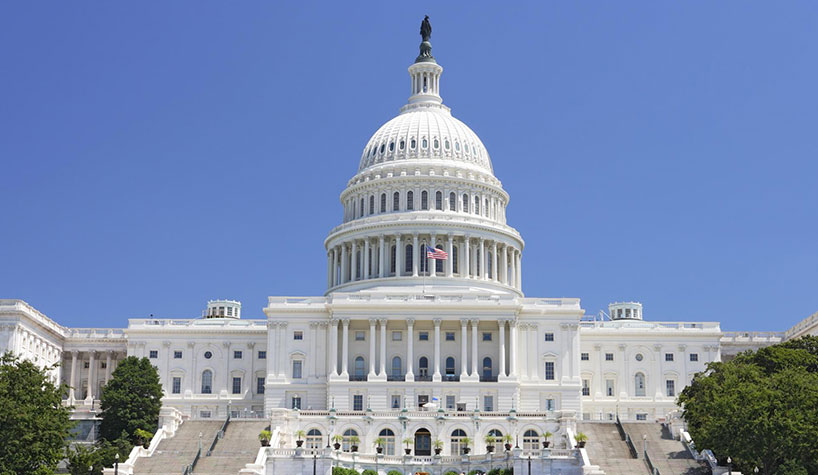WASHINGTON—The passage of the Payroll Protection Flexibility Act by Congress has been met with approval from various travel associations. The bill now requires President Trump’s signature to become law.
If signed, the following changes, except as stated in item No. 1, would be effective retroactively, as if included in the Coronavirus Aid, Relief, and Economic Security (CARES) Act originally.
- Extends the minimum maturity of PPP loans to five years. This would take effect on the date of the bill’s enactment and apply to any PPP loan made on or after such a date; however, lenders and borrowers would not be prohibited from mutually agreeing to modify the maturity terms of prior-disbursed PPP loans.
- Extends the covered period for using PPP loan proceeds from June 30, 2020, to Dec. 31
- Extends the covered period for PPP loan forgiveness from eight weeks from the date of origination to the earlier of 24 weeks from the origination date or Dec. 31, 2020. A borrower who received a loan before the bill’s enactment could elect to continue using the eight-week covered period set forth in the CARES Act.
- Extends the deadline for the rehire exception to forgiveness reduction in the loan forgiveness provisions from June 30, 2020, to Dec. 31, 2020
- Provides that the amount of loan forgiveness will not be reduced by a reduction in the number of full-time equivalent employees, if, with respect to the period February 15, 2020, to December 31, 2020, the borrower is able to document in good faith (A) an inability to rehire employees who had been employed on February 15, 2020, and an inability to hire similarly qualified employees for unfilled positions by December 31, 2020, or (B) an inability to return to the same level of business activity at which the borrower was operating before February 15, 2020, due to compliance with federal governmental requirements or guidance set forth between March 1, 2020, and December 31, 2020, relating to standards of sanitation, social distancing, or other worker or customer safety requirements due to COVID-19.
“America’s hoteliers applaud the House and Senate for passing the Payroll Protection Flexibility Act,” said Cecil P. Staton, president/CEO, AAHOA. “This legislation will ensure that vital corrections are made to the Paycheck Protection Program (PPP) which will provide hoteliers with more options to keep the lights on and come out on the other side of this crisis. We are pleased that several of the recommendations for which we advocated are included in this bill including the extension of the covered period for using PPP loans through the end of 2020 and allowing borrowers to use more loan proceeds to cover a greater percentage of operating costs. Making these changes effective retroactively, as if they were included in the original CARES Act, will help small businesses significantly as they work to remain open, keep workers on payroll, and emerge from this crisis as our society reopens. We urge President Trump to sign this bill into law.”
Tori Emerson Barnes, EVP of public affairs and policy, U.S. Travel Association, issued the following statement. “The PPP changes passed by both chambers are another important step in providing relief to small businesses that otherwise will not survive until the economic recovery phase,” she said. “The modification to the portion of funds that can be used for non-payroll expenses is especially crucial to travel-related small businesses, which have comparatively high capital overhead but virtually zero incoming revenue because of the necessary measures in place to stem the spread of the pandemic.”
Emerson Barnes believes that more needs to be done. “While this measure does a good job making the PPP work better for businesses that are eligible, other PPP enhancements will be needed to make sure all the key pieces are in place when the recovery begin—in particular, extending eligibility to nonprofit and quasi-governmental entities that are vital drivers of local and regional economic development,” she said. “Like the businesses they serve, the finances of these nonprofits have been devastated by the standstill in travel and tourism, and the moment of recovery will be moot unless they can keep their lights on to take advantage of the return in travel demand.”
She continued, “We urge leaders to move urgently to enact the next phase of coronavirus response legislation, which is absolutely vital to the future of the travel and tourism industry, and to prioritize expanding eligibility to those most hard hit by this pandemic such as destination marketing organizations. We thank Sens. Rubio and Cardin, Reps. Phillips and Roy, and the leadership in both chambers for championing this bill and the important structural changes it makes to PPP, and for the continued attention by Congress to the dire needs of the American travel and business community and workforce.”




